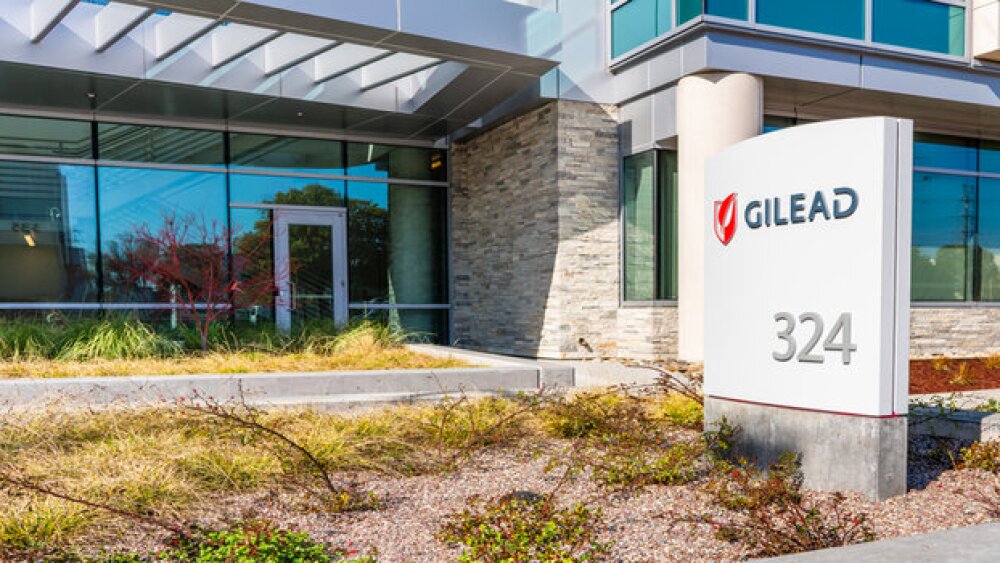Gilead on Thursday reported revenue growth in the first quarter of 2024, driven by the strong sales of its HIV, cancer and liver diseases franchises, while culling a number of candidates.
Gilead Sciences on Thursday released its first-quarter 2024 earnings results, touting a 5% year-on-year increase in total revenue, driven by the strong performance of its HIV, cancer and liver disease businesses.
In Q1, Gilead posted nearly $6.69 billion in earnings, up from more than $6.35 billion during the same period the prior year. The pharma’s HIV franchise, anchored by Biktarvy (bictegravir/emtricitabine/tenofovir alafenamide), remained its strongest unit with quarterly sales growing 4% to more than $4.34 billion.
Biktarvy was Gilead’s top-performing asset bringing in nearly $2.95 billion worldwide, followed by the antiviral Veklury (remdesivir) which took a 3% sales hit but nevertheless brought in $555 million.
“Gilead delivered another strong quarter of revenue growth … in our base business driven by HIV, Oncology and Liver Diseases,” CEO Daniel O’Day said in a statement, adding that the pharma is looking forward to a year of promising pipeline updates, particularly regarding its long-acting HIV and cancer programs.
Despite the positive revenue growth, Gilead reported that it is diluted earnings per share (EPS) dropped $3.34 in the first quarter, which was primarily due to “an acquired in-process research and development charge of $3.9 billion, or $3.14 per share, related to the acquisition of CymaBay therapeutics.”
In February 2024, Gilead announced that it was buying CymaBay for $4.3 billion, or $32.50 per share, in cash. The acquisition gave Gilead ownership of seladelpar, which is being developed for primary biliary cholangitis (PBC).
Gilead CFO Andy Dickinson in a Thursday investor call said that “while the transaction will be dilutive to our EPS this year, we expect the deal to be breakeven to earnings in 2025, and significantly accretive in 2026 onwards.”
Seladelpar is expected to be a strong contributor to Gilead’s ledger this year and beyond. The FDA is currently reviewing seladelpar with its decision due on August 14, 2024, and the company is working to make the drug available shortly after its potential approval.
“Following its launch in 2024, we expect seladelpar to contribute modestly to sales and more meaningfully in 2025 and beyond,” CCO Johanna Mercier said in the investor call, adding that the drug candidate—a selective PPAR delta agonist—has “the potential to be best-in-class with a differentiated clinical profile” and could fulfill a significant unmet need in PBC.
Besides seladelpar, Gilead is also looking forward to readouts for its HIV treatment Sunlenca (lenacapavir) for pre-exposure prophylaxis. A Phase III update is expected in the second half of this year, with a potential launch as early as 2025.
Gilead also announced Thursday that it has finally discontinued the development of the anti-CD47 antibody magrolimab, which has suffered a series of clinical holds in recent months.
The pharma also ended the development of its CAR-T therapy Tecartus (brexucabtagene autoleucel) for rare B-cell malignancies, as well as another early-stage cell therapy for relapsed/refractory acute myeloid leukemia. Gilead also scrapped two studies of the Arcus-partnered domvanalimab in non-small cell lung cancer.
Tristan Manalac is an independent science writer based in Metro Manila, Philippines. Reach out to him on LinkedIn or email him at tristan@tristanmanalac.com or tristan.manalac@biospace.com.






